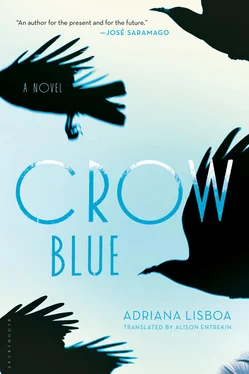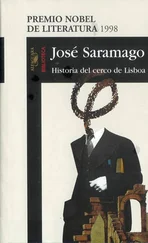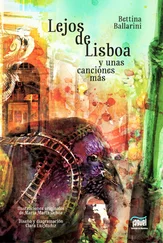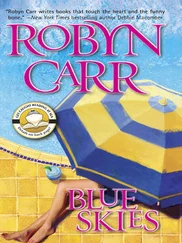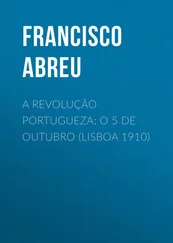Manuela was among the guerrillas who took part in the operation. Chico should have been.
But there was a moment, before daybreak, as the Araguaia communists were heading for what was to be their first successful military offensive, when Chico stopped. The others continued on, believing in their feet and hands and eyes and weapons, and Chico stopped.
No one saw him. The sky was still dark in a winter that had barely ended, in the heart of a forest that Trans-Amazonian Highways bled awkwardly, without talent, without conviction. Somewhat embarrassed, knowing perhaps that they would never be more than sketches of highways.
Chico thought about Peking. He thought about the opera, and the painted masks on the faces of the singer-actors. He thought about their difficult voices, which made curves that were different to those of the singers he knew. He thought about his Chinese interpreters, and the many nights and many days he had spent in that faraway country, then he thought no more.
He saw Manuela in the distance, from behind, her hair tied back, the hair that had once belonged to a Rio student versed in language and literature, nail polish and special shampoos and who was now versed in hoes, knives and guns. She was much thinner than when she had arrived here, that rainy day, yet another rainy day. Beneath her dry skin covered in sores were new muscles for new skills. And Chico thought about how people’s bodies were adaptable: to cold, to heat, to fear, to hunger, to work. To hoes, knives and guns.
He saw Manuela in the distance and it was the last time he saw Manuela.
She kept going and he stayed were he was. He could have taken a step, and it would have been the first of many more, as he accompanied the group headed for the Military Police post. All he had to do was lift up his foot and put it down a little further away; it was a step and didn’t require training or philosophy and he’d known how to do it since he was a child. Communist guerrillas took steps, dictators took steps, men and women and old people and children in Brazil, in China, in Albania, in the United States, in Cuba and in Bolivia and even on the moon took steps. But he stayed where he was for a time which was a potholed asphalt road slicing through his life from east to west. From the Atlantic to the Peruvian border. And the longer he stood there, Chico knew, an unforeseen decision was being sealed — unforeseen and, in the pit of his stomach, more shameful than the military’s shameful inability to do away with that group which, for any number of reasons, should have been exterminated a long time ago. They, the guerrillas, were ghosts walking through the forest, believing (believing?) in another world. They were already ghosts. If he had gotten close to Manuela again, he might have seen through her skin. She was possibly already losing ownership of her body, as it was obvious that she would, sooner or later. Like him. Like all of them.
Chico never got close to Manuela again. Being the skillful woodsman that he was, he found his way out of there, far from there, far from everything, himself included.
The killing would begin the following month. The hunt for the guerrillas and the extermination of all of them. The military would pick them off one by one. Perhaps Chico sensed it. Perhaps he only suspected it. Feared it. Gave up.
Chico didn’t hear the detachment commander’s shouts that morning. He didn’t see the soldiers coming out of the post amidst flames and smoke. He didn’t see them being evicted. Chico didn’t see Manuela looking for him, the rest of the detachment too but especially Manuela, looking for him. Manuela, who had been his companion during such a troubled time, and who would be one of the missing of the Araguaia Guerrilla Movement, a presumed pile of bones among the presumed piles of bones buried in unknown places, a question mark in the official history of the country in the decades to come. How could Chico have imagined it all? Chico never had news of her again — and it was with a bitter aftertaste that he heard that love song, when he heard it. Como é que você não me diz quando é que você me faz feliz? Onde é que vamos morar? (Why won’t you tell me when you are going to make me happy? Where are we going to live?) It was with a bitter aftertaste that he harbored his certainty of her uncertainty: Had Chico been captured? Killed? Had he deserted? (No, Chico wouldn’t have deserted. Chico wasn’t the sort. He had been to the Peking Military Academy. He was good with weapons. And other things.)
Chico made a quick stopover in Goiânia. He said goodbye to his mother and left. He never set foot in Brazil again. Six months later he was serving draft beers in a London pub, and singing out loud when he felt like it, and off-key if he had to.
June had said that we should look up Isabel in Albuquerque. There was a time when my mother’s house on San Pablo Street became a confluence of worlds, friends of diverse origins, Spanish students, English students, Portuguese students, with Spanglish reverberating within the walls of the 1950s house — vintage, they would say today — as music by Noel Rosa and Milton Nascimento played in the background. My mother would have been the owner of a vintage house, promoted to the “charming” category by the passage of time. Without her having gone to any effort, without her having paid for the privilege. June used to visit my mother’s house sometimes, back then, with her Queen’s English and her royal consort. According to June, Isabel also used to frequent my mother’s house. They held parties almost daily.
Not long before you were born, June explained. Isabel was Suzana’s English student. They ended up becoming friends. Isabel had recently arrived from Puerto Rico and was studying theatre. And she knew how to make mojitos and margueritas.
So she’s an actress?
No, said June.
And she didn’t say anything else. The things June didn’t say were another kind of chatter. If she suddenly went vehemently quiet, there was no room for you to ask her a thing.
Later Isabel went back to Puerto Rico for a few years, she went on. But she’s been back in Albuquerque for a while now and would love to meet you. All of you.
We spent the night in a motel chosen for its price. Carlos decreed that it was muy bueno . Very good. The heated pool was a little bigger than the one at the motel near Starkville, and the towels were whiter. The bedroom was better lit, the bedspreads newer and the watercolors on the walls less faded.
That night we didn’t talk. Fernando turned on the TV, selected a Mexican channel and watched a soccer game and Carlos wrote down the Highlights of the Day in a notebook that Florence had given him as a present. In his shaky scrawl, he wrote the motel in Albuquerque is very good. And he showed me, pleased with himself. He had brought some more tourist brochures from the reception and read to me that Albuquerque had OVER THREE HUNDRED YEARS OF HISTORY. He asked if we could buy some scissors and glue the next day, because he wanted to cut those things out and stick them in his notebook.
I looked at the brochure. The Albuquerque area was inhabited by Native Americans for hundreds of years. The current city was founded in 1706, when Governor Francisco Cuervo y Valdez wrote a letter to the Duke of Albuquerque telling him that he had found a village on the banks of the Rio Grande. From that time on, the city — named after the duke — grew from a small settlement into a wealthy metropolis with over eight hundred thousand inhabitants. Come visit the city where the people and culture are
Fernando?
What?
What’s this word here?
He glanced at the brochure. Enmeshed.
What does enmeshed mean?
Читать дальше
